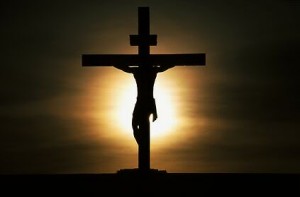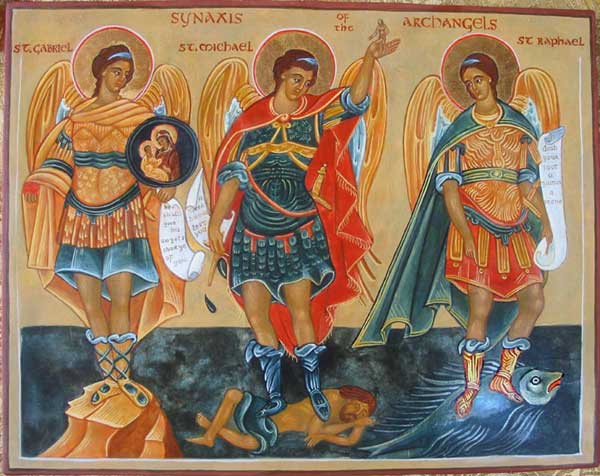 Jesus Christ was nailed to the cross about midday, expired thereon in the afternoon, and was taken down in the evening toward sunset, or the sixth hour. According to the language of St. Paul, thus did He, by His blood, pacify heaven and earth.
Jesus Christ was nailed to the cross about midday, expired thereon in the afternoon, and was taken down in the evening toward sunset, or the sixth hour. According to the language of St. Paul, thus did He, by His blood, pacify heaven and earth.
If this form of expression convey not simply the reconciliation of heaven with the earth, it veils a mystery impenetrable to feeble reason. But this very reconciliation is in itself the greatest mystery; for man always vainly tries to explain it by recurring to comparisons and considerations of human conception merely, which are vastly insufficient from the fact of being human. And what matters it, after all, whether we understand or not so great a mystery? Enough for us that it has produced its effect, and that we are able to adore it in gratitude and love.
That philosophy should rail at what it does not fathom is sheer foolishness. Incredulity may scoff at what it does not recognize; it concerns it, however, to know whether reason be on its side. Let heresy explain, after human fashion, things divine; as for us Christians, let us fix our gaze on the Mediator between God and man, raised aloft between heaven and earth, with arms outstretching in order to enfold the universe, with head down bent to give to the world the kiss of peace and reconciliation, after having, at the cost of His blood, purchased peace; and let us humble our whole being in heartfelt thanksgiving and love. Let us reverently imprint our lips on this cross, the instrument of our salvation; let us bend down trembling before the just God Who takes such revenge for our guilt.
By our work let us make some return for the price we have cost; by our penitence and tears let us apply to ourselves the merit of His redemption, and henceforth live only for heaven, since we have been made heirs to heaven.
Reflection. The cross, “to the Jews indeed a stumbling block, and to the “Gentiles foolishness,” is, withal, the instrument of Christ’s power and of the wisdom of God.


